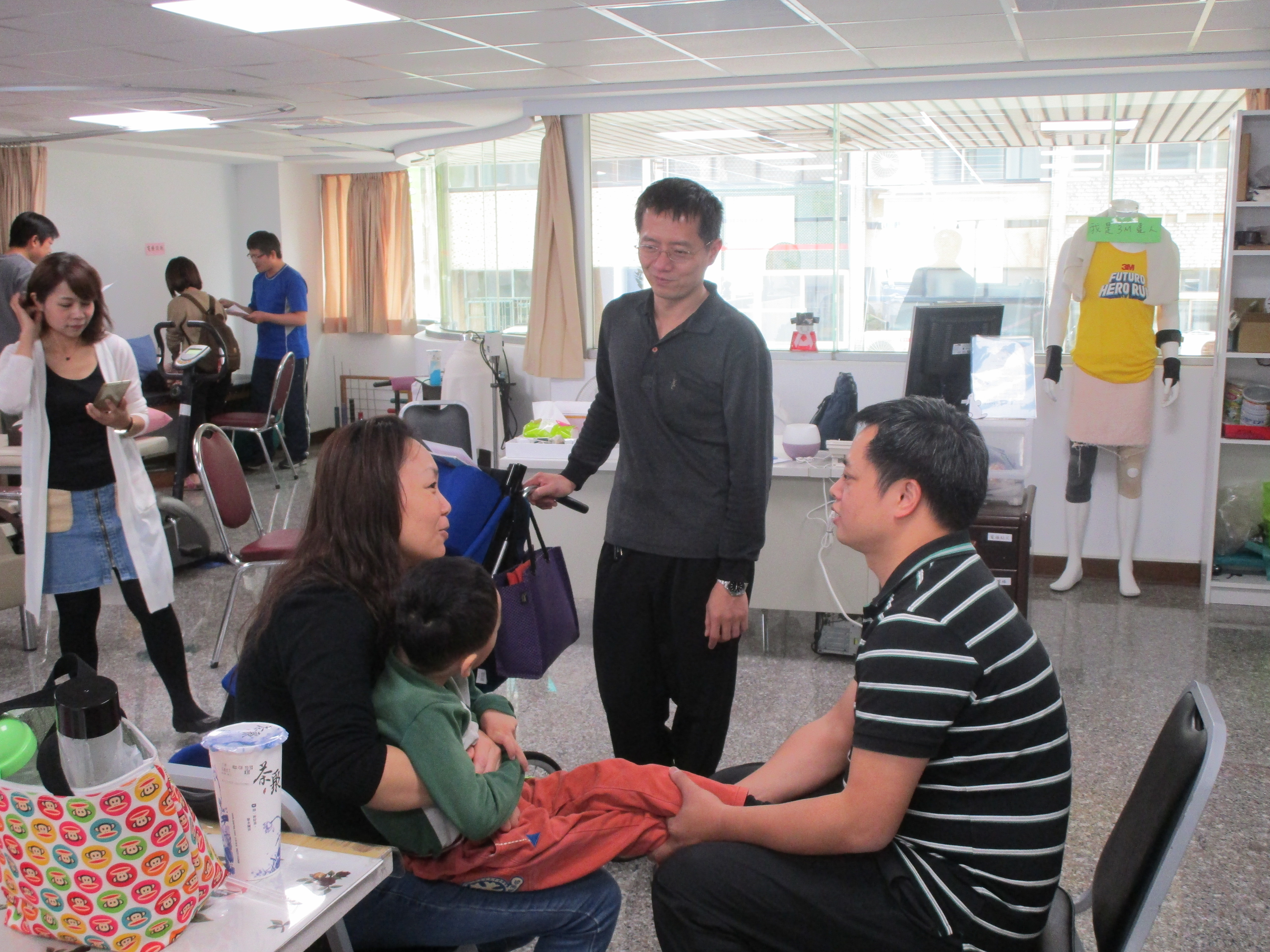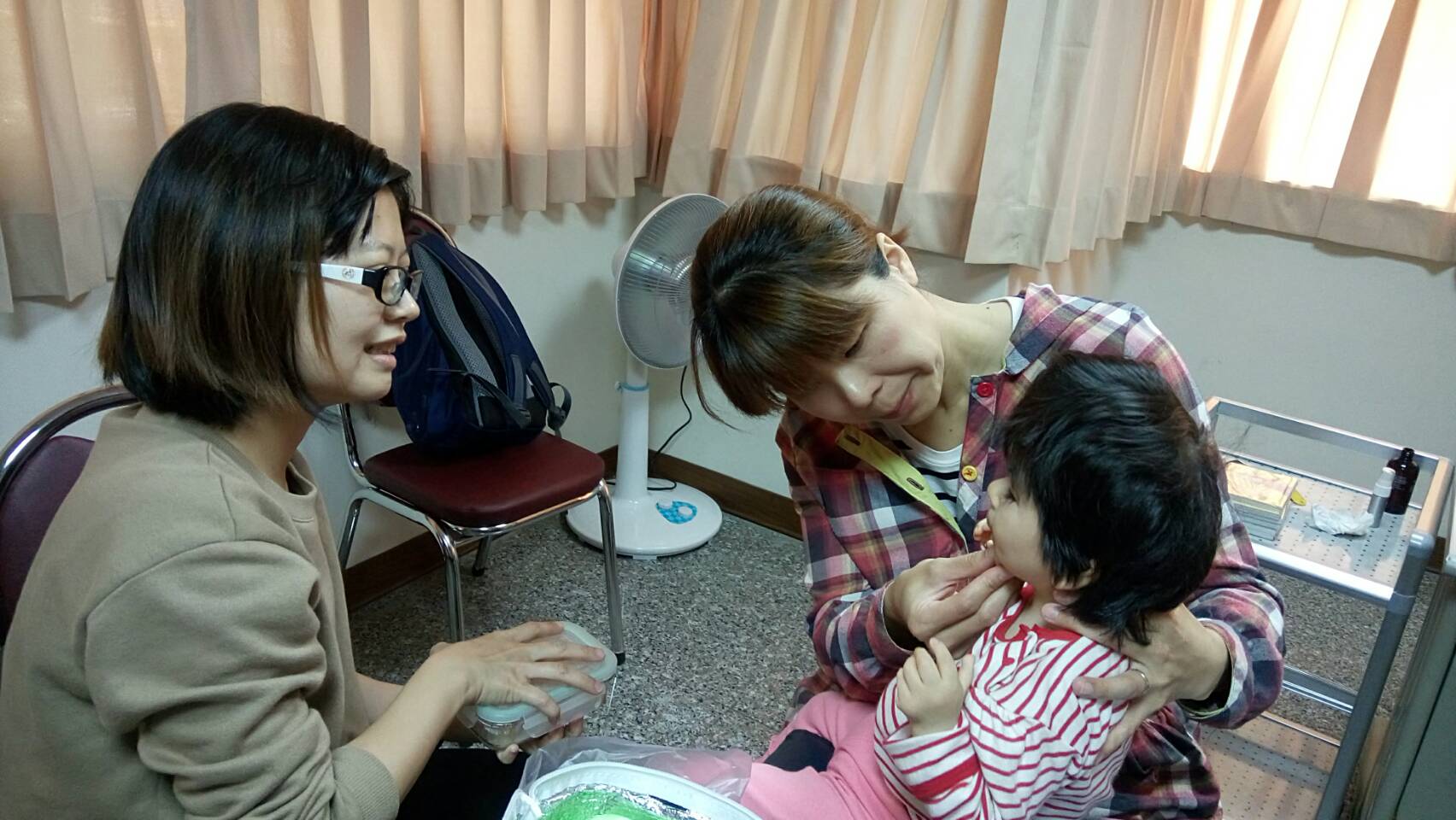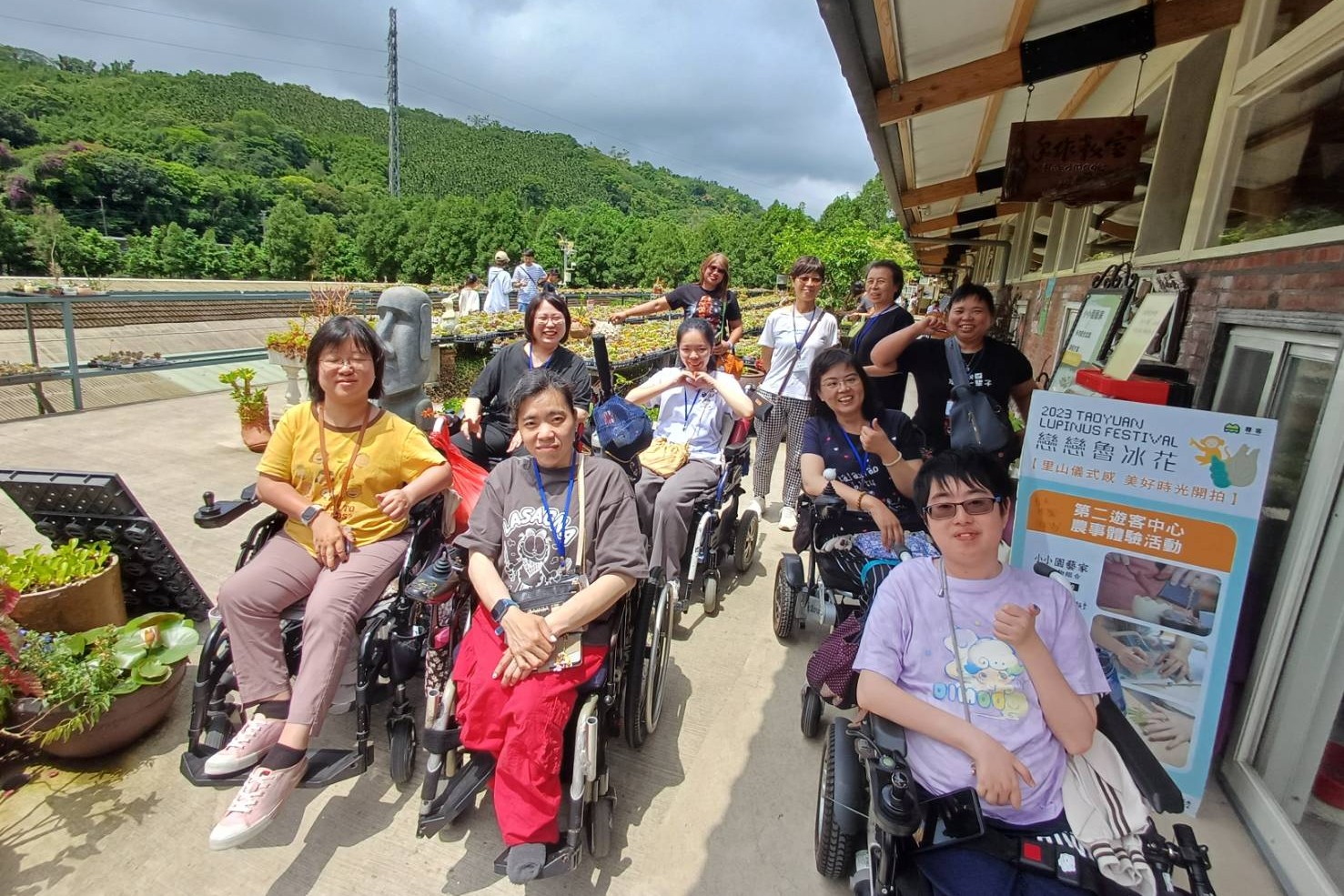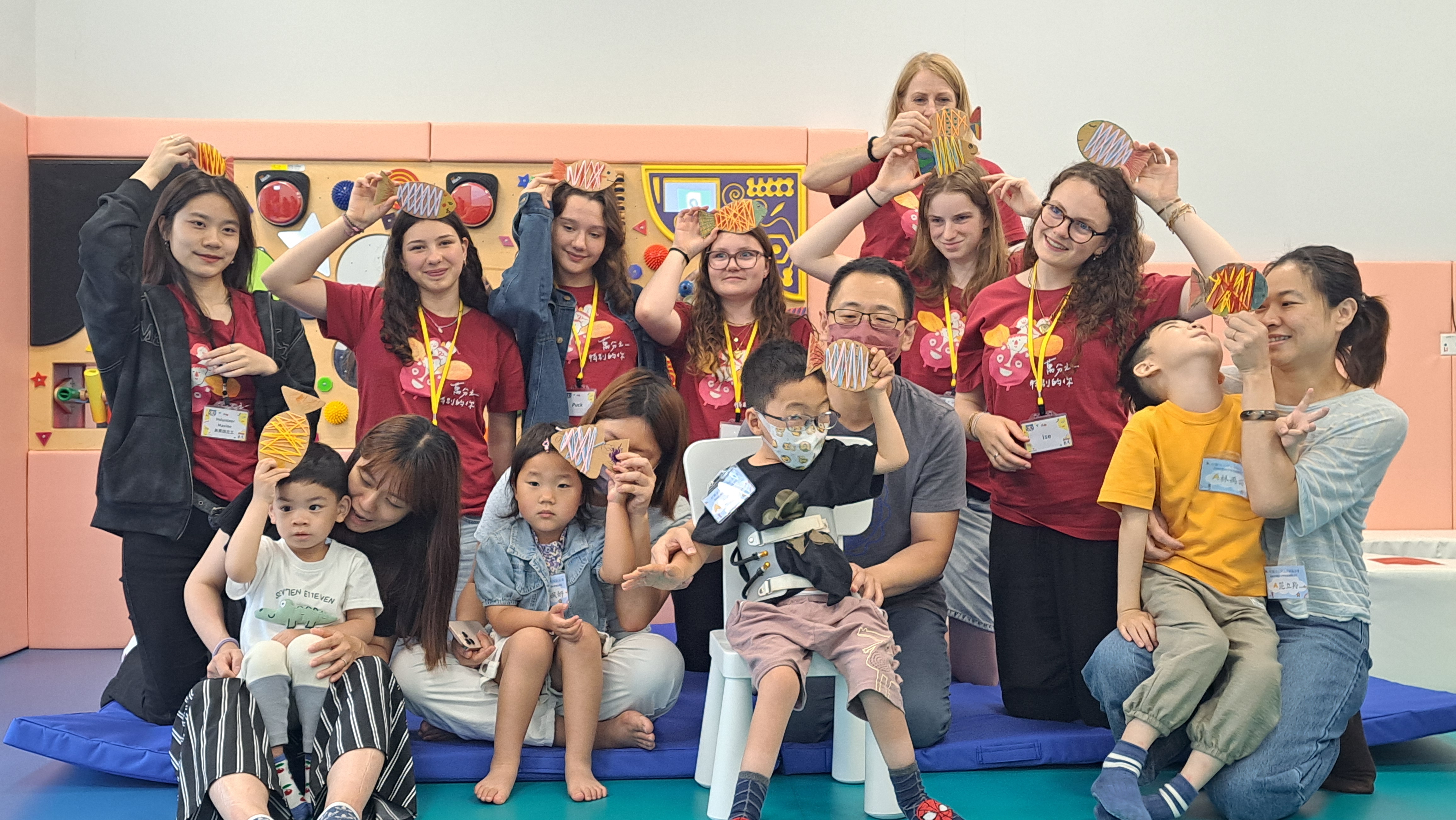News
The Central District Rehabilitation Evaluation
The central district rehabilitation evaluation
To help rare disorder patients who has multiple needs find the most appropriate rehabilitation treatment, Taiwan Foundation for Rare Disorders (TFRD) held the Central District rehabilitation Evaluation in the clinics of Changhua on March 25th. They invited five physiotherapists, occupational therapists, and language therapists to assis. Besides, some aroma therapists let everyone experience the essential oil aromatherapy, which made those care givers have a brief relaxing moment.
For those rare disorders who engaged the evaluation, are suffered from Cornelia de Lange syndrome, Lesch-Nyhan syndrome, and Huntington's chorea. During the evaluation period, the care givers highly engaged the discussion with the therapists. Some of them brought the food they usually offered for their rare disorder’s family membe. They also asked the therapists to evaluate the swallowing function of the rare disorders. The coordinators who took care of the rare disorders personally also learned how to rehabilitate.
All the therapists provided different opinion based on their own expertise, and have the rare disorders and their family understand the blind spot of the rehabilitation. For example, the disorders of Huntington's chorea can enhance the ability of swallowing and eating. Furthermore, the therapists also reminded them of infection and crawling motion. The disorders of Lesch-Nyhan syndrome have the most serious problem of emotional management owing to the trouble of muscle hypertension and self-harm. The disorders of Huntington's chorea should emphasize the balance and simply complex rehabilitation. All of the rare disease families worked hard on taking notes. They took all the suggestions and would like to practice them at home carefully.
This event was a first new experience for the therapists, too. Instead of offering written information only in previous seminars, this time they joined the event in person which highly promoted the service quality.
Translator: Flora (Treacher Collins syndrome), Reviewer: Sandy










